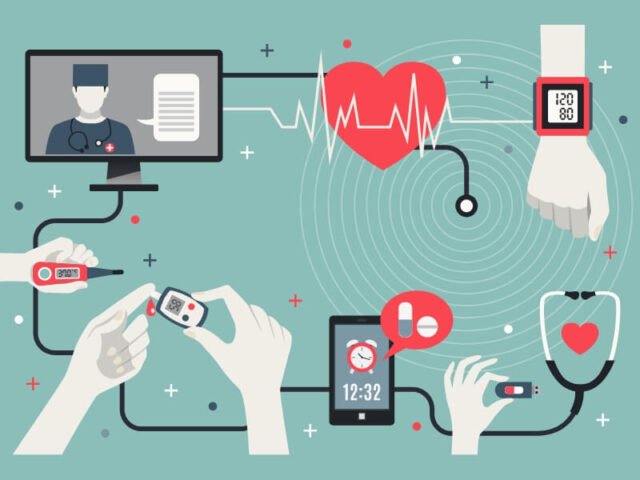
As technology continues to rapidly evolve, healthcare app development is also experiencing some major advances. These days, healthcare apps are no longer limited to mundane tasks such as tracking your health data and scheduling appointments. Instead, they are more sophisticated than ever before, offering users a multitude of features and services that make it easier than ever for people to manage their health and wellbeing.
As technology advances, healthcare app development is becoming increasingly sophisticated. Healthcare app developers are constantly looking for ways to improve the user experience by incorporating more advanced features and services. For example, many apps now feature virtual health assistance through AI chatbots or offer users a comprehensive view of their personal health data from various sources such as medical records or wearable devices.
The use of technology in healthcare also extends to remote care, with apps enabling users to access healthcare services such as video consultations or online prescriptions. This is especially useful for those who live in rural areas or have busy lifestyles and find it difficult to visit a healthcare professional in person. The use of mobile technology also allows healthcare providers to be more flexible when it comes to patient care, offering timely advice and support whenever needed.
List of Future trends and Innovations in Healthcare app development
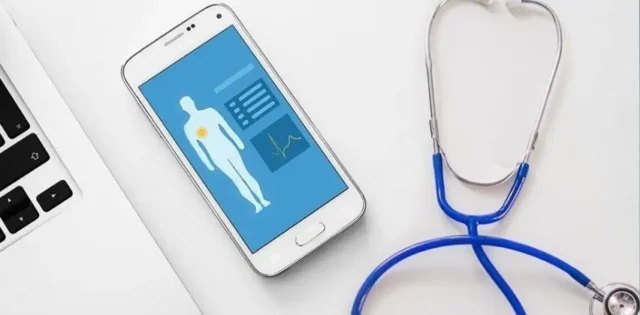
As technology continues to shape the healthcare industry, it is important to understand the latest trends and innovations in healthcare mobile app development. From telemedicine to AI-powered applications, there are a number of advancements that are helping patients and doctors stay connected and informed. Below is a list of some of the most recent trends and innovations in healthcare app development:
1. Telemedicine: Telemedicine is an emerging trend in healthcare app development. Telemedicine apps allow patients to connect remotely with a doctor or healthcare provider for diagnosis and treatment, as well as providing access to educational resources about health-related topics.
2. AI-Powered Apps: AI-powered apps are becoming increasingly popular in the realm of healthcare app development. These apps use natural language processing and machine learning to provide personalized advice and recommendations for patients.
3. Wearables: Wearable devices are now being used to track patient health data, such as heart rate, breathing rate, temperature, and more. This data can then be used to inform healthcare providers about the patient’s health status in real-time.
4. Augmented Reality (AR): AR technology is being used in healthcare app development to help medical professionals with difficult procedures. AR can also be used to provide visuals of medical conditions and treatments for patients, making it easier to understand and learn about their health.
5. Blockchain: Blockchain technology is now being used by some healthcare organizations as a more secure way to store patient data and ensure its integrity. This technology can also be used to create smart contracts between patients and healthcare providers.
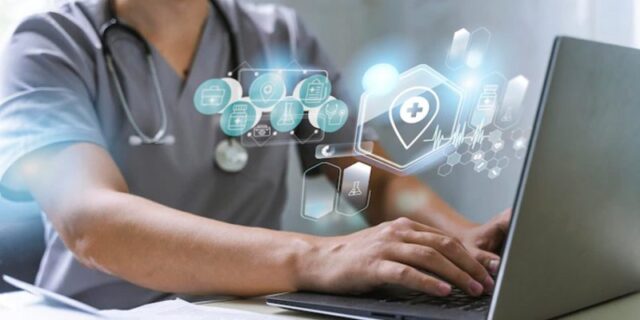
6.Cloud Computing: Cloud computing is being used in healthcare app development to provide users with secure and efficient access to their medical records and other health data. This allows healthcare app development companies for improved collaboration between patients and healthcare providers, as well as more streamlined care coordination.
7.Data Security: Data security is an important feature of any healthcare app, as patient data must be kept secure and confidential. Healthcare app developers have been implementing encryption technology to ensure that data is not compromised or accessed illegally. This helps to protect the privacy and rights of patients while also preventing hackers from gaining access to sensitive health information.
8. Artificial Intelligence and Virtual Reality: AI-powered healthcare applications are capable of collecting, analyzing, and providing insights into patient data. This enables healthcare professionals to make more accurate diagnoses and treatments for their patients. VR-based healthcare apps allow users to virtually experience clinical care, such as surgeries and other medical procedures, without having to enter a physical environment.
The use of mobile technology in healthcare does not end with just app development. Wearable devices such as fitness trackers and smartwatches can be used to monitor patient health data and even detect potential health issues before they become serious. Healthcare app developers and AI powered voice assistants are also being used in healthcare to provide personalized advice and recommendations for patients, while virtual reality (VR) headsets can help medical professionals practice complex procedures and provide more immersive patient care.
Advantages and Disadvantages of New Trends and Innovation in Healthcare app development
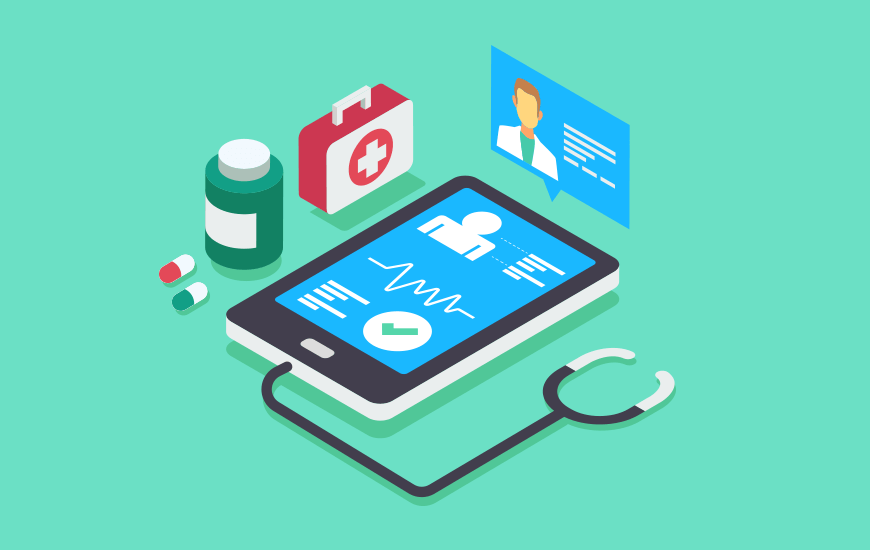
Advantages
- Increased Accessibility: With the growing popularity of mobile apps, healthcare access is quickly becoming more accessible to those who may not have had the same opportunities before. This can include remote monitoring, digital health records, and appointment booking that are all available on a smartphone or tablet.
- Cost Savings: Apps provide an efficient and cost-effective way to provide healthcare services, as they can be used to reduce paperwork and eliminate redundant processes. This helps to save both time and money, allowing healthcare organizations to focus more on providing quality care for their patients.
- Improved Patient Outcomes: The use of mobile apps in healthcare can help improve patient outcomes by providing better information for doctors and other medical professionals. Doctors can also use apps to monitor patients’ health and provide treatment plans tailored to individual needs.
- Improved Security: Apps that are designed for healthcare can have enhanced security protocols, making them more difficult to hack than standard applications. This helps to ensure that patient data is kept secure and private, which is essential in the healthcare industry.
Disadvantages
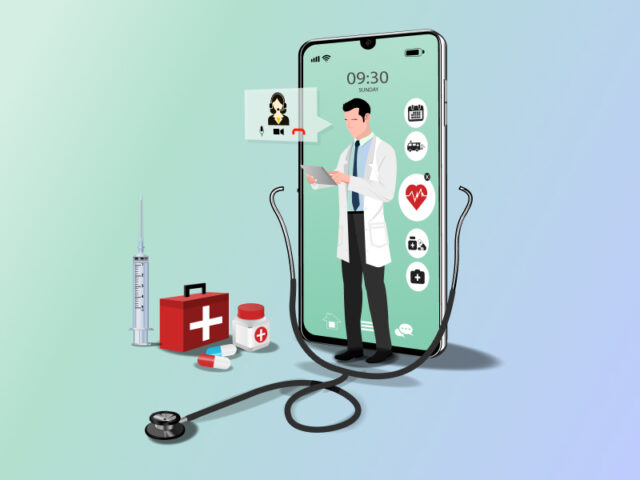
- Data Security Concerns: While apps can provide enhanced security protocols, they are still vulnerable to hacking and data breaches. This is especially true for medical apps that store sensitive patient information, such as medical history and insurance information.
- Risk of Unreliable Information: With the abundance of health-related information available online, it can be difficult to know which sources are reliable. There is a risk that healthcare providers and patients may rely on inaccurate or outdated information, which can lead to incorrect diagnoses or treatments.
- High Development Cost: Developing a mobile app for the healthcare industry can be quite costly due to the advanced technology required. This makes it difficult for smaller organizations or startups to enter the healthcare app market.
- Interloper ability Issues: Different healthcare organizations may not be able to share data between their systems due to different technologies or security protocols. This can lead to fragmented patient information, making it more difficult for doctors and other medical professionals to provide quality care.
The proliferation of mobile apps in the healthcare sector has also brought about some unexpected challenges. One such challenge is dealing with an increasingly complex patient data landscape. Healthcare mobile app development companies must manage large amounts of data from multiple sources, which can be difficult to integrate and analyze. Additionally, healthcare providers must ensure that they are compliant with heavy regulations, such as HIPAA and GDPR. This can be a daunting task, but with the right tools and resources, it can be managed effectively.
Conclusion
Healthcare app development has been a rapidly growing trend in recent years. The convenience and accuracy of medical data that can be accessed through apps makes them increasingly attractive to both healthcare providers and patients. With the rise of mobile technology, there are more opportunities for healthcare organizations to provide better services, make more informed decisions, and increase efficiency. The development of healthcare apps has the potential to revolutionize how patient care is delivered, but there are still some challenges associated with this trend. Healthcare organizations must ensure that they are compliant with regulations, have proper security protocols in place, and can manage large amounts of data effectively.







